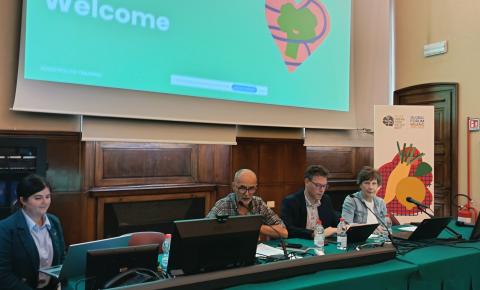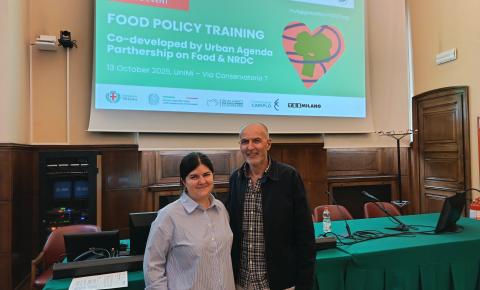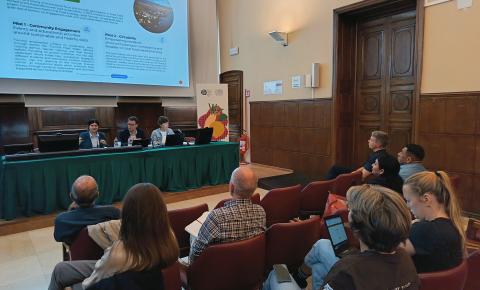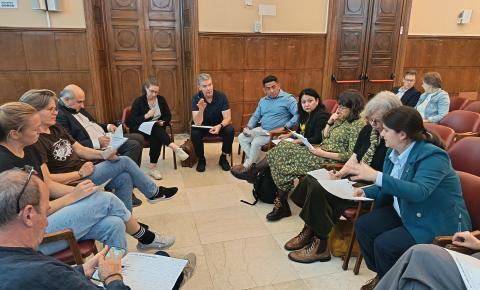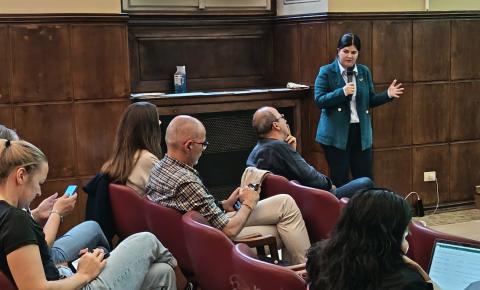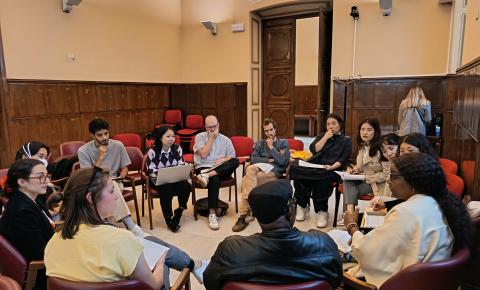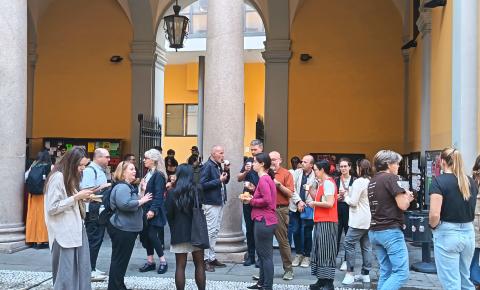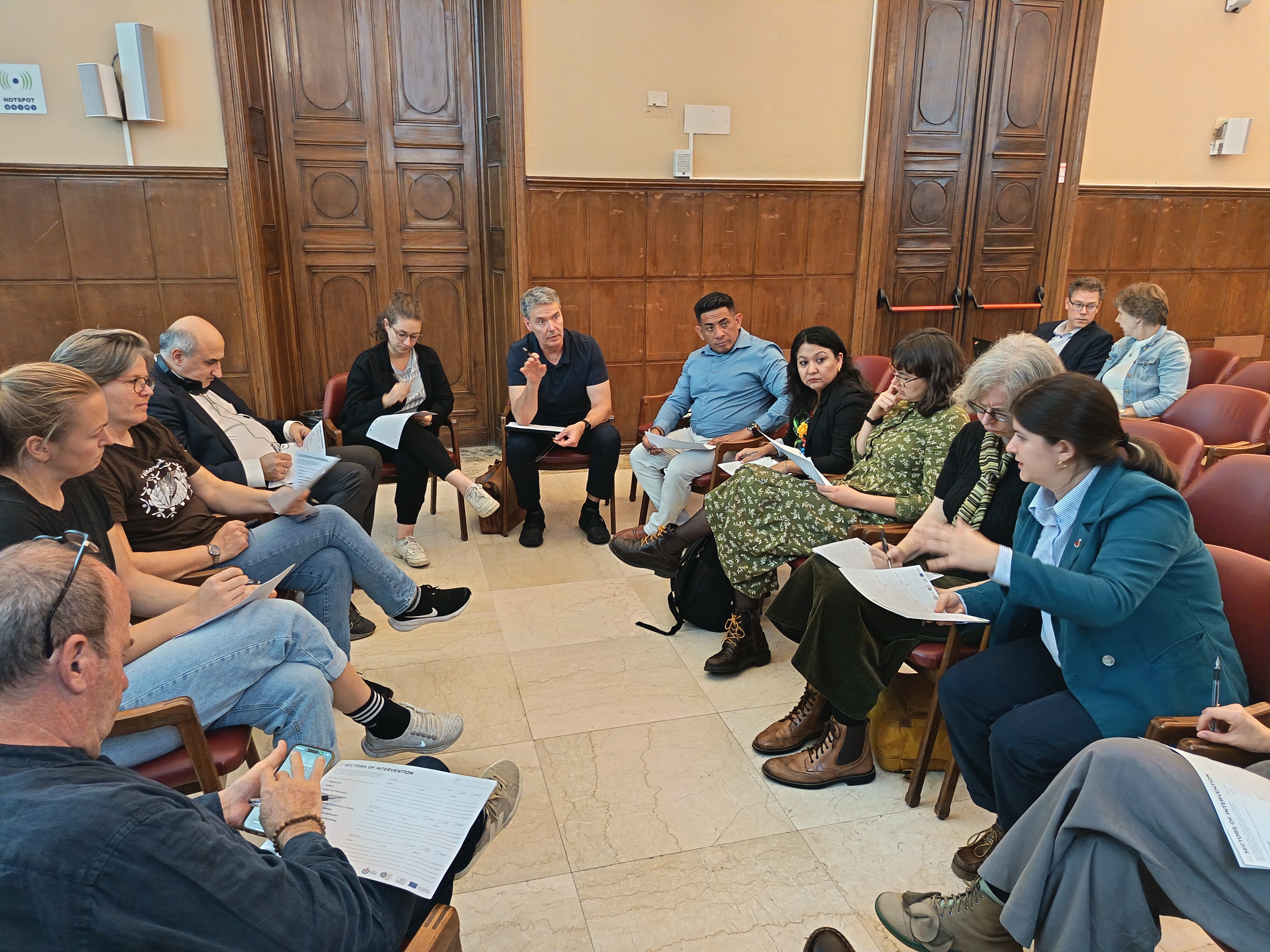
Urban Food Policy Training kicks off to empower sustainable food systems
What was the training about?
The training, developed in collaboration with researchers from Wageningen Economic Research and the Natural Resources Defense Council (NRDC), was structured around two sessions:
• Developing Urban Food Policies – This session featured insights from the Food Trails project and showcased real-life case studies from cities.
• Designing Food Waste Actions – This practical session provided tools and methodologies for developing effective food waste actions.
After an introduction by the Food Partnership coordinators, Elisa Porreca from the City of Milan and João Lopes from the Metropolitan Area of Lisbon, and a presentation of the Food Action Plan by the Thematic Partnership Officer, the training moved into its core sessions.
Developing Urban Food Policies
The first session highlighted examples from the Food Trails project, an Innovation Action funded under Horizon 2020, which supports the development and implementation of urban food strategies and living labs to pilot food policy actions.
One of the inspiring actions presented during the training was the Warsaw Food Lab, launched by the City of Warsaw to promote sustainable food transformation using the REACT Method. This approach combines evidence-based insights with systems thinking to foster cross-sector collaboration, with a strong focus on reducing food waste. A key target of this effort includes restaurants and associations that receive food from the local food bank.
An important challenge raised was the difficulty of approving food policies at the local level in Poland. Due to the national legislative framework, thematic policies such as food strategies cannot be formally adopted by cities. Instead, food system priorities will be integrated into Warsaw’s broader urban development plan.
Another example mentioned came from the metropolitan area of Grenoble-Alpes Métropole, which launched a volunteer initiative to support municipalities in improving food procurement practices. The initiative aims to promote healthier, more sustainable diets in schools by focusing on food quality, sourcing, and waste reduction. It also includes tailored training for professionals to help integrate food system transition goals into their daily work.
The session also provided a deeper dive into the Food Trails Handbook, a resource developed by the project. The handbook serves as a valuable tool for anyone working on urban food systems, offering inspiration and practical guidance for cities looking to adopt a similar approach.
You can explore and delve deeper into the FIRST SESSION by:
Designing Food Waste Actions
The second session was designed to be more interactive. Following an introductory presentation by the Natural Resources Defense Council (NRDC), which framed the importance of food waste reduction within city food strategies, participants had the opportunity to break into two groups and simulate the development of a food waste action plan through a three-step process:
- Self-Assessment – Evaluating governance structures, existing actions, and priority areas related to food waste reduction.
- Stakeholder Analysis – Identifying key actors and building consensus around the creation of a food waste reduction action plan.
- Food Policy Action Canvas – Using a structured tool to detail a comprehensive Food Waste Programme Action Plan.
You can explore and delve deeper into the SECOND SESSION by:
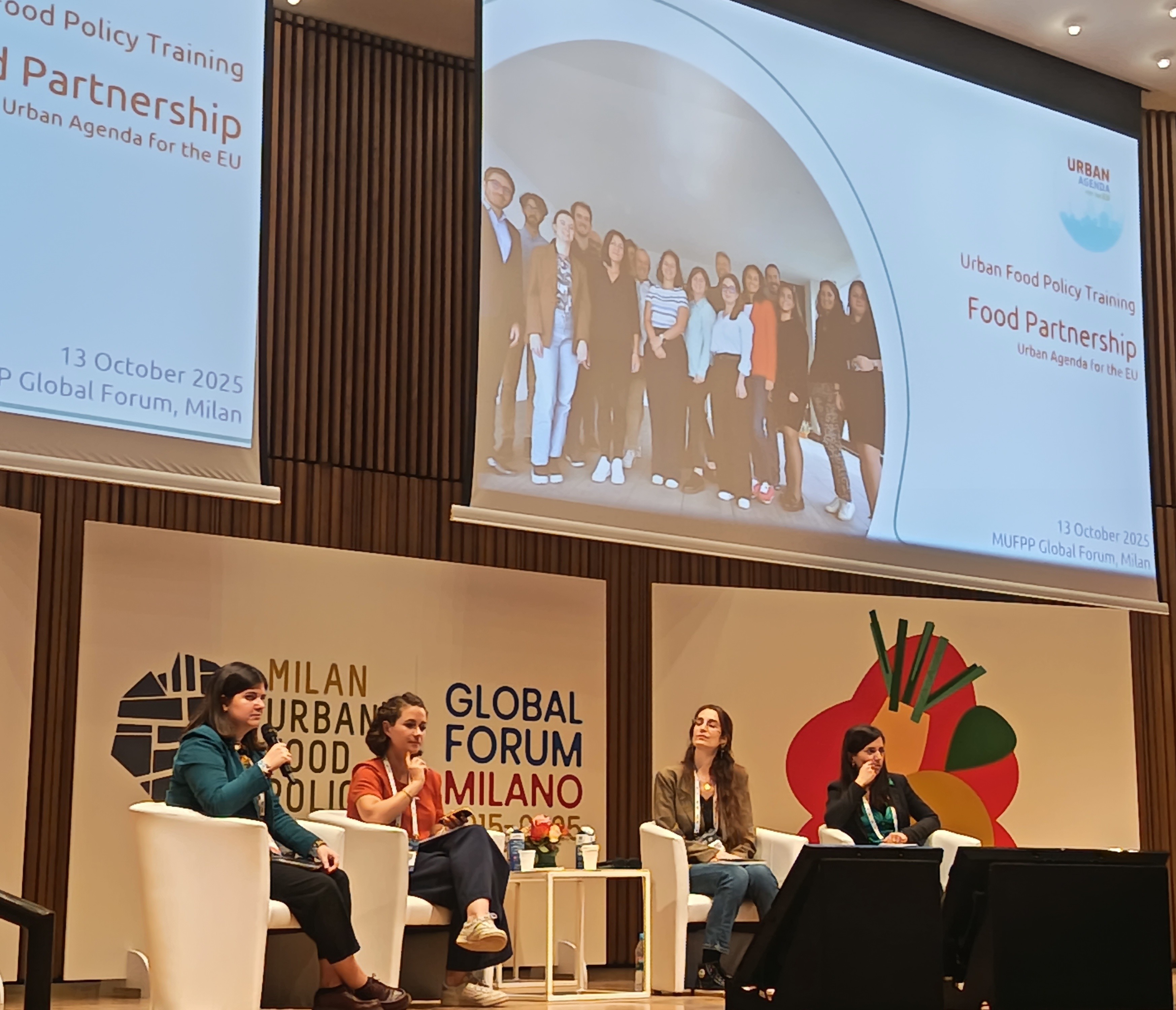
Ensuring food systems have a place in EU policy agenda
On October 14, the City of Milan, co-coordinator of the Partnership, together with Eurocities, one of the Action Leaders, presented the Partnership’s key actions and priority themes during the regional session dedicated to EU cities at the Milan Urban Food Policy Pact (MUFPP) Global Forum.
A major highlight of the session was the presentation of one of the Partnership’s first key outputs: a policy statement advocating for an integrated EU policy that empowers local urban food systems. The statement will gather input from cities, Partnership members, and external stakeholders, with the aim of placing food systems firmly on the EU policy agenda and ensuring that cities have a voice in the EU Food Dialogue, which will be organised by DG AGRI in December 2025.
The regional session also offered an opportunity to discuss an important initiative launched by the European Commission — the European Child Guarantee. This initiative aims to prevent and combat social exclusion by ensuring that children in need have effective access to a set of key services, including healthy nutrition.
Following the establishment of the initiative, all EU Member States appointed their national Child Guarantee Coordinators and prepared national action plans, which cover the period until 2030. Member States with a level of child poverty above the EU average are required to allocate at least 5% of their ESF+ resources to implement their action plans.
Funding under ESF+ may be used to pilot or scale up initiatives that improve access to these services, or to enable more effective use of national, regional, and local budgets. Cities play a crucial role in turning the Child Guarantee into reality and in reaching the goal of lifting at least five million children out of poverty by 2030, as set out in the European Pillar of Social Rights action plan.
Stay tuned for the upcoming training modules!
Action 4 of the Food Action Plan features additional modules following a similar format: an introductory session on developing urban food policies, followed by a thematic deep-dive. The next training module is scheduled for November 21 in Barcelona and will focus on indicators.
Visit the Food Partnership webpage to stay informed!
